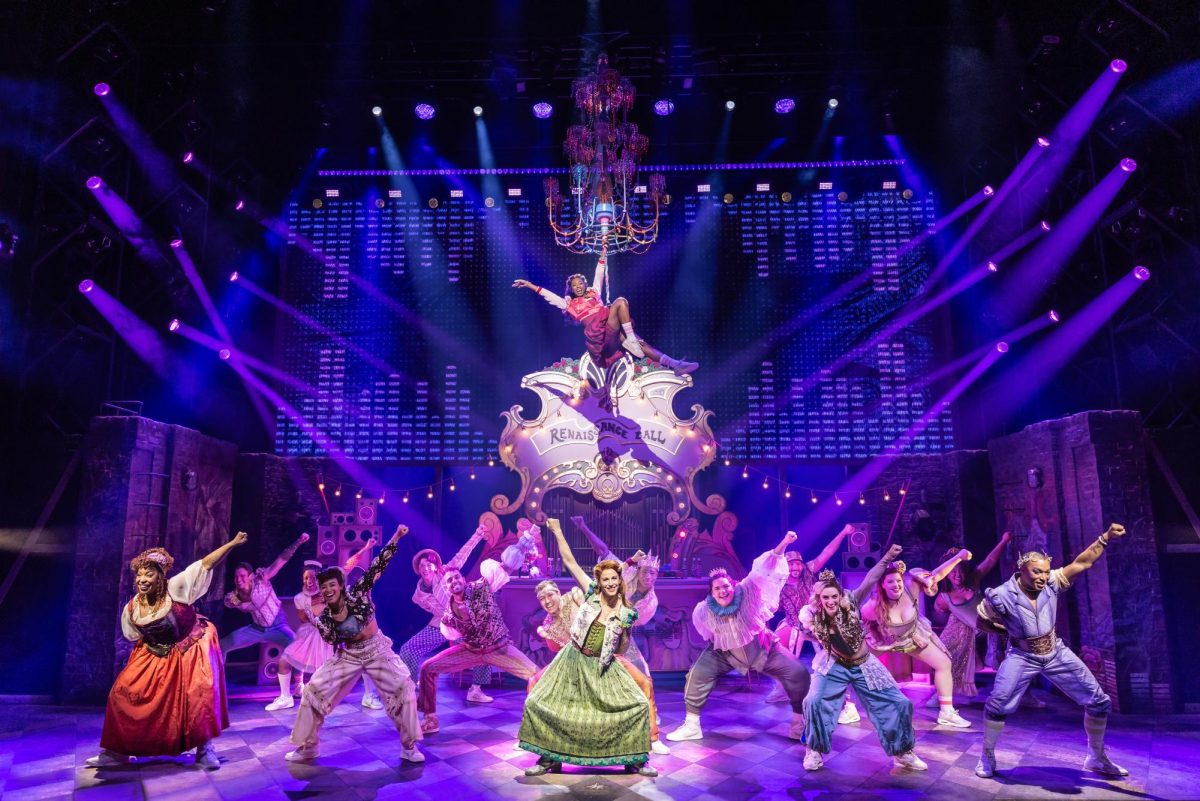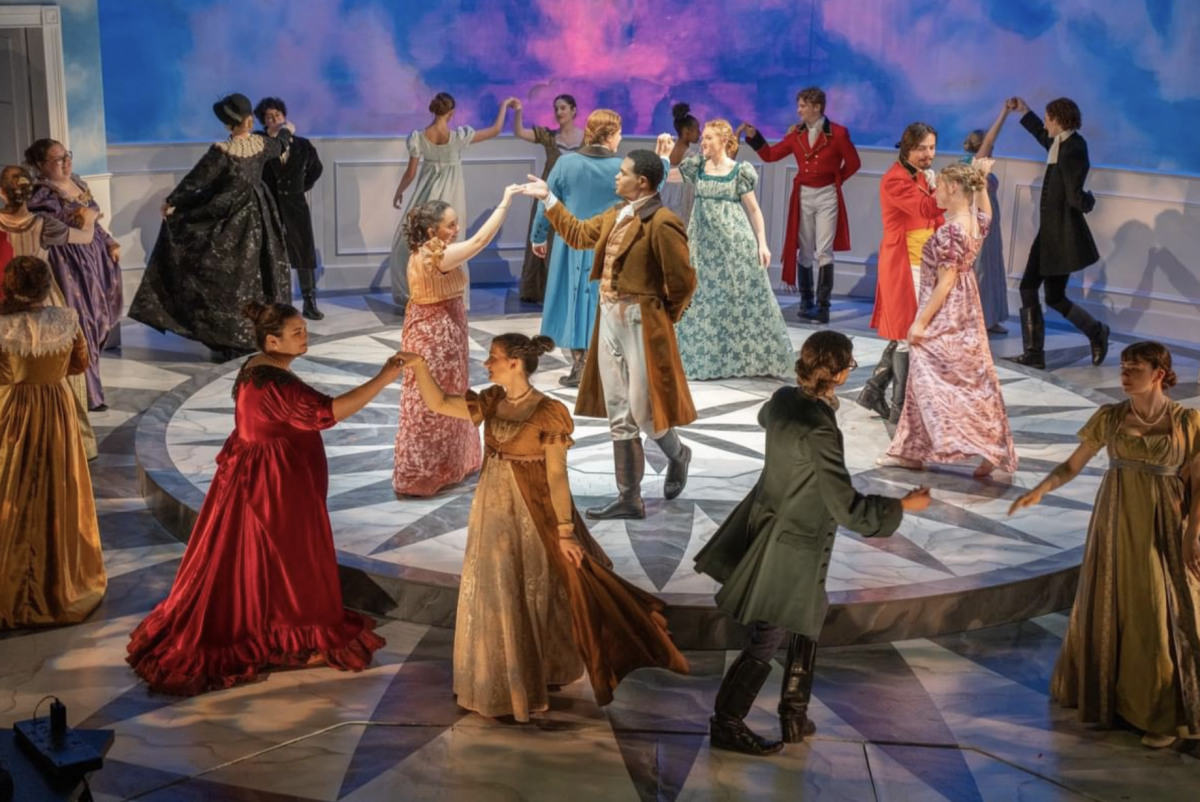This week, the best entertainment in Madtown will be brought to you by the letter “Q.” Starting today, the Overture Center for the Arts will be playing host to “Avenue Q,” the “Sesame Street”-inspired musical featuring puppets in their 20s and 30s exploring adult themes such as racism, pornography and homosexuality. In a recent interview with The Badger Herald, actor Rob McClure, a member of the “Avenue Q” Broadway cast who now plays the lead role of Princeton as well as the character Rod in the national tour, offered some personal insight into the Tony Award-winning show, the Muppets and the “controversial” topic of puppet sex.
The Badger Herald: Was there any particular event or person who got you into acting in the first place?
Rob McClure: I started acting in high school not necessarily because I thought I was any better or worse than anybody else at it, but because it was just something else to put on your college application. But I knew that I loved doing it; I knew it was really fun.
BH: What do you remember most about your first time performing on Broadway?
RM: I remember the feeling that I had made it. What’s so funny is six months later the show was over, and I was just as unemployed as anyone else around. (laughs) But I love the feeling of never knowing what is next or where the next job is going to come from or what your next big gig is going to be.
BH: It says on your website you were a big fan of the Muppets growing up. How much did this influence your decision to take on a role in “Avenue Q?”
RM: It certainly had influenced my decision to audition for it. I was a huge fan of the Muppets growing up. I collect Muppet stuff, and I have all the DVDs. I was always in awe of the universe Jim Henson created because everything about it was about the good in people. The humor was never cynical or negative, and none of the characters on “The Muppet Show” were ever jaded. Even the humor came out of the goodness in people. It wasn’t this sort of contemporary sarcasm that has taken over. It really focused on kindness, and I loved that. I saw “Avenue Q” off-Broadway back in 2003, and I was blown away. I just remember thinking what a loving tribute and homage to that sort of children’s programming.
BH: How would you compare your roles in “Avenue Q” to roles you have done in the past?
RM: The puppetry was something I never thought I would be involved in. I remember during the audition process, thinking that step one was going to be making sure your hand moves the puppet’s mouth with the speech. But instead step one was making sure the puppet breathes in before he speaks. The puppet needs to inhale before he can speak like any person does. I thought, ‘Oh my god, we are going to be here forever if that is step one.’ (laughs) But it is that wonderfully detailed, and, hopefully, the audience takes completely for granted during the show all the hard work that goes into making this inanimate creature seem alive.
BH: Is it difficult to perform some of the more awkward scenes in the show like the puppet sex scenes?
RM: I would say it is a million times easier than doing it without the puppet. (laughs) I mean the technical aspect of making the puppet look like it’s actually doing all the crazy things that they do in “Avenue Q” is certainly difficult. It is so technical that it doesn’t have time to be awkward, because you are just thinking about getting the puppetry right. Whereas I think if I were doing a sex scene just as an actor, I think it would be a lot more awkward.
BH: “Avenue Q” has been described as an “adult puppet show” and “Sesame Street for grown-ups.” How would you best describe it?
RM: One of the people in New York said it was “Sesame Street” meets “South Park,” which I think is close. I would describe it as a children’s television homage onstage that is absolutely not for children. It follows that recipe with people and puppets living on an avenue learning lessons about life, but they no longer need to learn their ABCs and 123s. Instead, they need to learn how to pay their bills, how to have relationships and how to have sex. That is where the humor comes in, seeing these characters that you identified with as children facing problems that are now suddenly a lot more relatable.
BH: What do you think it is about “Avenue Q” that allows it to include Internet porn pirates and closeted homosexuals, yet, still be entertaining and tasteful?
RM: You know, I think the puppets are what allow us to get away with it. If people came out and sang a song entitled “Everyone’s a Little Bit Racist,” I don’t think audiences would respond to it. The puppets have this wide-eyed innocence and naive outlook on the world. They are not approaching these topics with biases or preconceived notices. They are simply saying what they see in a very childlike fashion so the audience can reflect on these issues. I think that’s what brings not only the humor but the truth to the table for the audience.
“Avenue Q” runs through Oct. 26 at the Overture Center. Visit www.overturecenter.com for information about tickets and showtimes.







